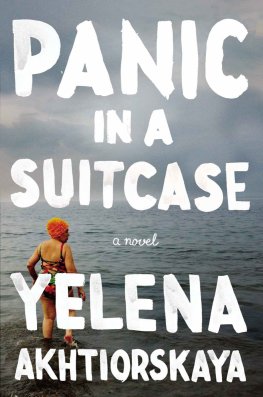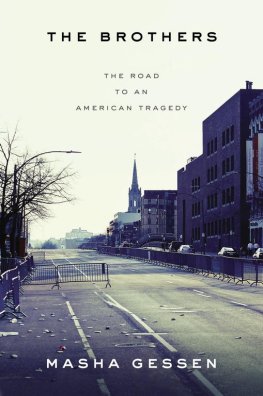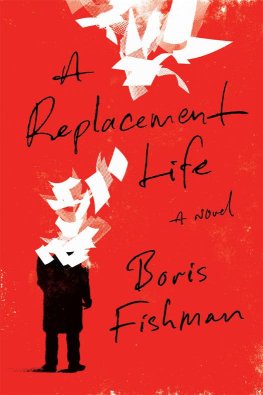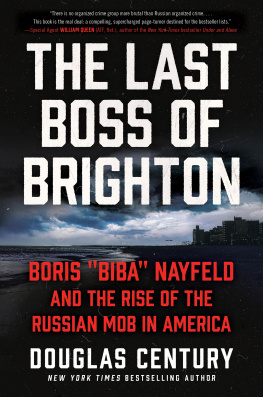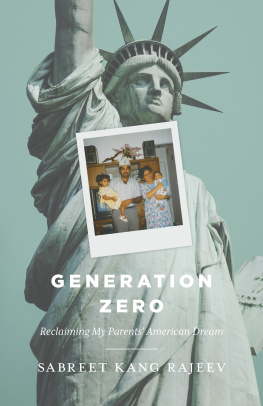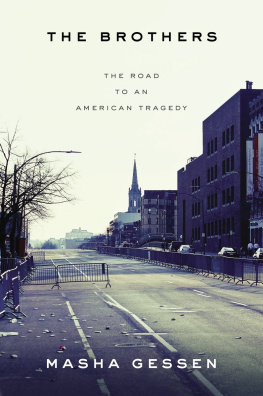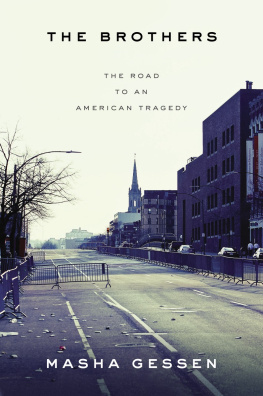Yelena Akhtiorskaya
Panic in a Suitcase
To my family, who never fails to make the Truth stranger
THE MORNING WAS IDEAL, a crime to waste it cooped up. They were off to the shore. That means you, too, Pasha you need some color, a dunk would do you good, so would a stroll. Arent you curious to see Coney Island? Freud had been. Dont deliberate till its too late. Strokes are known to make surprise appearances in the family. Who knows how long? Now, get up off that couch!
Pasha had just flown in last night and didnt feel well achy joints, profuse sweating, a bout of tachycardia. It was as if his family could hear the roar of blood in his ears and tried to shout over it. A sum total of fourteen hours strapped into an aisle seat near the gurgling lavatory of a dented, gasoline-reeking airplane, two layovers, and a night spent in the stiff embrace of a plastic bench in the Kiev airport wouldve been tough on any constitution, and Pasha didnt have just any constitution but that of a poet sickly from the outset, the dysfunction lying in the vital organs (heart, lungs), nose and ears disproportionately large for the head, head abnormally large for the body, premature stains under the eyes, spooky immobility of gaze, vermicelli limbs, metabolic peculiarities. If hed been smart, he wouldve been born at least half a century earlier into a noble family and spent his adult life hopping between tiny Swiss Alp towns and lakeside sanatoria, soaking in bathhouses and natural springs, rubbing thighs with steamy neurotics, taking aimless strolls with the assistance of a branch, corrupting tubercular maidens, composing spirited if long-winded letters to those with this-world cares, letters that would seem to emerge from a time vacuum, with epigrammatic morsels of wisdom and nature descriptions of the breathtaking but exasperating sort.
Instead Pasha was born in 1956 to a family whose nobility was strictly of spirit. A dusty courtyard was the extent of his interactions with nature, a branch of assistance only in fending off feral dogs. He rode trams, avoided doctors. Correspondences, if initiated, fell by the wayside before long. He grew to be unreasonably tall (a result of too many parsnips that mustve been it, since he never touched a carrot or a potato), though it wouldve been better were he small and compact, considering the quality of motor control he exercised. His figure moved precariously along the street. There were hovels, abandoned or rustling with elderly squatters, that proceeded to stand while promising to collapse with the next gust. They were plenty on the outskirts of Odessa, but even in the city center there was one on most blocks. They no longer struck the eye as a single entity a house but as a pile of boards, bent, twisted, leaning; a heap, rubble, cats. Pashas skeletal structure was a bit like that. Prophets are not meant to be healthy, wrote Brodsky, who suffered his first myocardial infarction at the age of thirty-six. At least hed had broad shoulders. A poet must be feeble, ugly, somehow at a physical disadvantage; if not born that way, hed promptly get to work on his disintegration by way of alcohol, cigarettes, insomnia, depression. Pasha didnt have to put in the effort. His time could be spent on other endeavors.
Pashas physique resembled Odessas habitations but not its inhabitants, who were built well (no complaints there). They were tall but not beyond their means, spry and sinewy, with tans so deep they mustve had extra layers of skin, crude jawlines, and coarse yellow hair. They ate fried dough, fried cabbage, dog meat, and exuded an obstinate vitality. Yet it seemed as if nature had taken less time with them, not more, as if the craft were in the defects. Their superior biological constitutions were perhaps correlated to the dilapidation of their dwelling spaces; theres an inverse relationship to be found here.
Other relationships, however, required tending. Pasha was in Brooklyn, where both the buildings and the people were in need of fortifying, and hed be honoring the borough with his presence for all of July the entire month! There would be no shortage of first-rate mornings, he pointed out to his restless kin, who mistook the manipulations of neuroses for liveliness, enthusiasm. Look out the window! they shouted. Just look out the window!
Tomorrow will be even better, said Pasha. Not as humid.
How presumptuous. What did he know about Julys in New York? As a matter of fact, they were wet, dreary, unpredictable. All of this, however, was beside the point. Having just arrived, he should want to spend time with his family. Theyd have plenty of opportunities to tire of one another.
If there was tension, it was partly attributable to the way Pasha had dealt with his impending visit, which was the way he dealt with all practical matters avoid until they could be avoided no more, a point decided not by him but by external forces (however hard he tried to ignore these forces, they wouldnt ignore him). His sister, Marina, had done everything within her power to simplify the process short of chartering a private jet. Shed decided on the dates and sent him the fare for his ticket. They had no money, but Pasha had even less. When he received the envelope with the cash and felt its weight in his palm, it was somehow even less tangible than when hed been informed it was coming. He put the envelope in the center of the kitchen table and for the next month endured a dread of mealtimes, indulging the preference to eat at his desk. Nothing happened, yet the days passed. He grew pale and perplexed. There wasnt a more horrifying, cold-sweat-inducing suspicion than that those external forces had finally decided to give up on him. He spoke regularly with his father, Robert, who wouldnt dare strain relations by mentioning such banalities as a plane ticket. Marina juggled an increasing number of jobs and was always running in and out of the background, passing on hellos. But one day she grabbed the phone. Evidently shed lost her sense for small talk and banter, the very traits her new land was known to cultivate. What time do we pick you up? she asked. A silence. Ill tell you tomorrow, replied Pasha. The travel agency ridiculed him. Tickets now cost twice the amount hed been sent, money he didnt have. Marina flew into a howling rage that Pasha couldnt comprehend really, it was a simple mistake. Then, just as suddenly, the tempest turned off. The abruptness of the switch from stormy to calm only demonstrated how often such a switch had been practiced, how little faith she had in communicating a message to her brother, and how after all these years shed come to the cynical conclusion, though she wasnt cynical in the least, that to take offense was fruitless, that nothing could be worked out but only buried and masked.
Pasha gave a sigh and rolled to a sitting position. Agreement scattered everybody they rushed into and out of rooms, to the bathroom, for a drink of water, to pack the cherries, gather the towels, where are Roberts swimming trunks, and what about the beach blanket? Watching Pasha get ready was worse than watching a pot boil. It wasnt that he had a leisurely disposition but that his brain and body had long ago, perhaps at birth, suffered a breach, leaving his body on autopilot. His mind was neglectful, self-involved, preoccupied; its moods didnt reflect on the body, which applied a mechanical thoroughness to every undertaking, whether tying his shoelaces, blowing his nose, typing, or consuming Hunan shrimp, discovered last night to be more effective than corticosteroids for his sinusitis. By the time his shorts were buttoned or rather his brother-in-law Leviks shorts, since Pasha had brought with him for a monthlong visit only one pair (also Leviks hand-me-downs), onto which hed immediately tipped the welcoming glass of young Georgian wine Esther, Pashas mother, had packed a suitcase of nourishment (apples, cherries, plums, apricots, or the hard balls of assorted sizes and shades that passed for them in this country), replenishment (bologna sandwiches), stimulant (black tea), reward (poppy-seed rolls), punishment (carrots), and something to pass the time with (sunflower seeds, clothes that needed mending). Habits shouldnt be allowed to cement they must be extracted early on, like wisdom teeth. In Odessa, Esther and Roberts dacha had been a ten-minute walk from the sea, which for reasons that dont translate was considered a long, arduous journey. If a crucial beach accoutrement was forgotten at home, no one wouldve thought to go back to get it. Decades of this kind of training had instilled a dogged discipline. Now that the ocean was in the front yard of their building, Esther still packed so that nothing would be lacking. The governing rule: There must be surplus, yet nothing should spoil.

